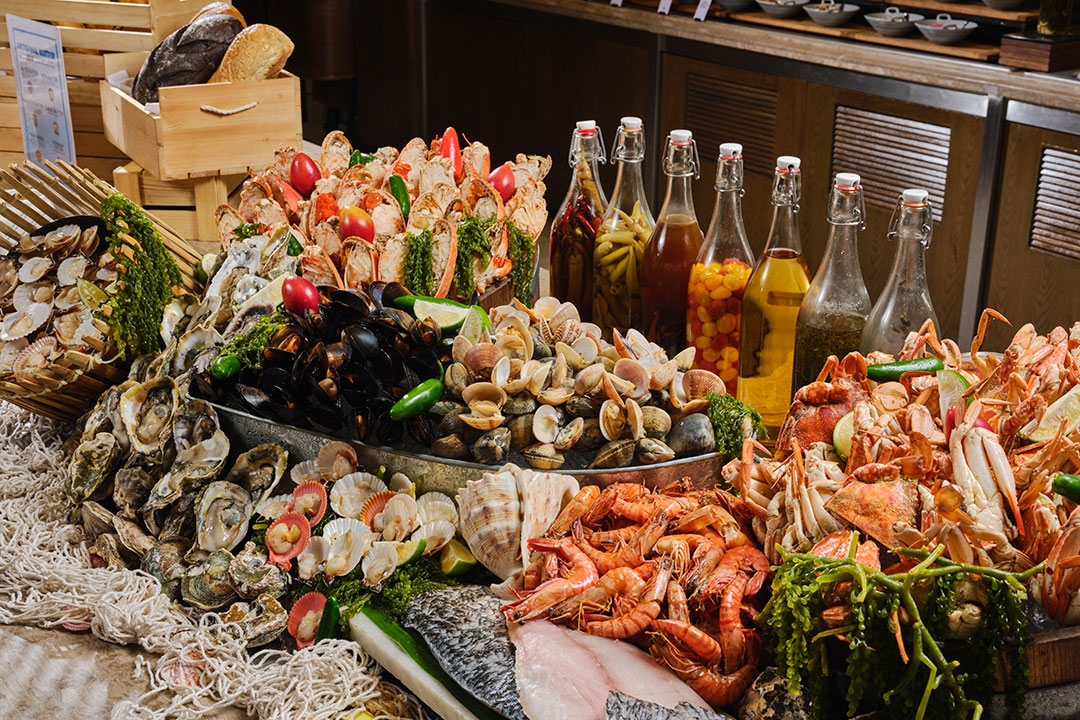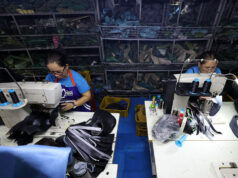
As much as possible, the Hilton makes its own or grows its own
WHILE DINERS were taken around Hilton Manila for a grand banquet on July 24, it was nice to know that every bite came with a touch of care for the people and the planet.
The Hilton is launching its “Dining Reimagined” campaign, featuring new items in its menu, but also a stronger sustainability campaign under their Executive Chef, Lord Bayaban.
That evening, guests were taken to the Madison Lounge and Port for drinks and snacks, but the highlights were Hua Yuan Brasserie Chinoise and Kusina Sea Kitchens, the hotel’s all-day dining restaurant. Executive Chinese Chef Kevin Xu presented a Shanghainese menu, reflecting luxury and the cosmopolitan nature of the city. These dishes include his Eight-Flavored Shanghai Xiao Long Bao, Braised Lion’s Head Meatball with Baby Abalone, and his Signature Peking Duck — the duck alone is worth the trip. To these, he added Cantonese-style Steamed Grouper with Aged Wine and Blue Crab in Spicy Sichuan Broth.
Meanwhile, at Kusina, Mr. Bayaban presented Japanese, Indian, Western (now called The Smokehaus), and Filipino stations, among others. The sashimi was excellent, and we found it charming that the rice balls actually were shaped into balls, reflecting careful preparation. The Indian station, riffing off classics from Northern India, was impressive (we loved the lamb biryani). The lechon at the Filipino section, meanwhile, was actually flavorful (the roast pig surrounded by bringhe, a native rice dish akin to paella), and not just big.
The Seafood Dampa makes a welcome return, and diners can now choose from a display of sustainably sourced seafood during dinner, paired with signature sauces such as Alavar, Palapa, garlic butter, and cheese. Kusina also introduces a dedicated Indo-Malay section, featuring Malaysian and Indonesian dishes with a kick of heat and spice.
“We’re now doing good, but we want to be great,” said Mr. Bayaban in an interview.
Perhaps doing something good does help in making a better dish: Mr. Bayaban highlighted the sustainability measures they enforce in the kitchens. For example, he pointed to the tuna and salmon in the Japanese station: these fish are completely traceable through a QR code on the boxes in which they arrive. “That will tell you where they’ve been caught.”
Meanwhile, all the vegetables at the Filipino station come directly from farmers from Atok and Mangayan in Benguet. “We’re trying to help local farmers. Because if no one will, we’ll try to help them out,” he said in a speech. Sourcing locally also helps reduce their carbon footprint. The hotel also grows its own herbs via an on-property hydroponic vertical herb garden.
The meat and sausages, as well as the lechon, are all made in-house. The meats in the Smokehaus are smoked for 18 hours with santol (a local wood), because he said it tenderized the meat and made it tasty (aside from helping with his sustainability goals).
He said, “It’s much more safe if we create our own, here,” he said of keeping as much as possible in-house.
There’s a deeper reason for Mr. Bayaban to serve sustainable dishes, than just ticking off boxes. “Thirty to 40 years from now, we won’t be here. Death is inevitable. What you will leave behind will identify your legacy,” he said in an interview.
“I want my son to still experience fresh produce, and local vegetables grown and harvested in this country.”
The weekend lunch buffet at Kusina is available for P2,800++ (noon to 2:30 p.m.), while the daily dinner buffet is offered at P3,000++ (5:30 to 9:30 p.m.).
For inquiries, contact 7239-7788 or e-mail MNLPH_F&Binquiries@hilton.com. — Joseph L. Garcia



